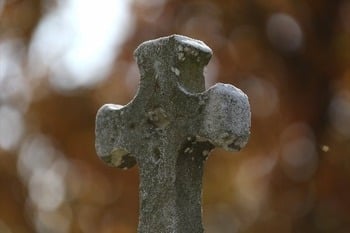-
 September 14, 2025By Jaymie Stuart Wolfe, OSV NewsPope Leo's birthday is Sept. 14; it coincides with a liturgical feast dedicated to an event -- the Exaltation of the Holy Cross -- rather than to a saint. This year, the date falls on a Sunday. While most feasts would be overshadowed, this one is among the few considered worthy to replace the regular Sunday Mass.
September 14, 2025By Jaymie Stuart Wolfe, OSV NewsPope Leo's birthday is Sept. 14; it coincides with a liturgical feast dedicated to an event -- the Exaltation of the Holy Cross -- rather than to a saint. This year, the date falls on a Sunday. While most feasts would be overshadowed, this one is among the few considered worthy to replace the regular Sunday Mass.
If you think that's a bit unusual, you're right. But there's no getting around the fact that when your calendar has been developing for 2,000 years, the elaborate rules that govern it -- and the exceptions to those rules -- are likely to be complicated.
The story behind the Exaltation of the Holy Cross is a fascinating mix of history and legend. In 326, 80-year-old St. Helen travels to the Holy Land with a grand and enduring purpose: To find the true cross, the one on which Jesus had been crucified.
In Jerusalem, the location of the cross is revealed to her by a mystical sign. And after destroying the pagan temple to Venus that had been built there, Helen promptly finds three crosses -- and a few other relics of Christ's Passion -- buried beneath its rubble.
Enlisting the help of the local bishop, Macarius, Helen takes all three crosses to the bedside of a dying woman. The true cross reveals itself when she is miraculously cured. Her mission complete, Helen leaves part of the cross in Jerusalem and takes the rest of it with her to Rome. By order of her son, the Emperor Constantine, the Church of the Holy Sepulchre is built over the sites she confirmed as Mt. Calvary and the empty tomb.
Stories like this are often easy to dismiss. But piecemeal accounts of Helen's quest were recorded by reputable sources, and the earliest of them date to within a few decades of the events they describe. According to Eusebius (d. 339), the site of the Holy Sepulchre had indeed been covered by a temple to Venus.
Not long afterward, St. Cyril of Jerusalem noted that the true cross had been discovered during the reign of Constantine. In his Fourth Catechesis, written around 350, Cyril uses it as evidence of the events recorded in the Gospels. "[Christ] was truly crucified for our sins. For if you would deny it, the place refutes you visibly, this blessed Golgotha, in which we are now assembled for the sake of Him who was here crucified; and the whole world has since been filled with pieces of the wood of the Cross."
Forty years later, a more complete version of the relic's discovery had emerged. The essentials of the event we still commemorate liturgically have remained remarkably consistent ever since.
What does a 1,700-year-old expedition have to do with us? In a real sense, St. Helen's pilgrimage is the quest of every disciple. Our vocational journeys are essentially a search for the true cross.
If we find it challenging to consider marriage, priesthood or consecrated life for ourselves, perhaps it's because the crosses others carry always appear lighter and easier to bear than our own.
As Christians, we know where the life of faith will lead us. Jesus did not mince words when he said, "Whoever wishes to come after me must deny himself, take up his cross, and follow me" (Mt 16:24). The footsteps of Christ are found on the way of the cross. The call to follow him is the call to self-sacrifice.
Every vocation demands that we lay down our lives and offer ourselves as gift. And every vocation generously provides the daily altars on which we can choose (or not choose) to surrender ourselves to God's will and his love. What we experience as "crosses" are the engines of grace, a countless array of opportunities to become holy.
Ultimately, the search for the true cross is a search for the Savior and for the salvation that only he can bring. Only Jesus can save us from our worst selves, only he can free us from all that binds us. Every Catholic is called to be "crucified with Christ" (Gal 2:20), to "fill up what is lacking in the afflictions of Christ" (Col 1:24), and to embrace the cross.
St. Helen's quest teaches us that the true cross can be found. Although it may be buried beneath the rubble of sin and selfishness, if we dig deep enough, its power will be revealed in our lives.
